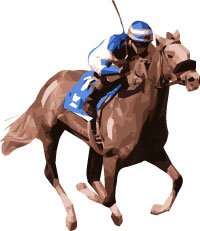The food supplied for the athletes at the London 2012 Olympic Village needs to cater to a diversity of sports, cultures, ages and special dietary needs. Below is some information about the Olympic Village food menu for London 2012. See more about Olympic Village nutrition and links to information about the food supplied at other Olympic Games.
"Catering for the Olympic Games and Paralympic Games is a monumental task. We want athletes and spectators to have the widest choices of food available and we want that food, wherever possible, to be British."
Bulk Catering
It is being called the "The largest peace-time catering operation in the world"
As for previous Olympic Games, the 2012 London Olympic Games athlete village has to cater to a large variety of diets. The food available at the athlete's village include almost every food imaginable. An enormous amount of foodstuffs is required to feed the athletes and officials in the village. There will be 16,500 athletes striving to perform at their peak on competition days. The correct food provision will help achieve this, by providing familiar and nutritionally balanced food and drink, available at exactly the right time of day or night.
It is estimated that over 14 million meals will be served up to 15,000 athletes across 40 separate locations during the Games. In the Olympic Village they will be using 25,000 loaves of bread; 232 tons of potatoes; 82 tons of seafood; 31 tons of poultry items; 100 tons of meat; 75,000 liters of milk; 19 tonnes of eggs; 21 tonnes of cheese; 330 tonnes of fruit and vegetables.
The athletes’ accommodation in Stratford, Weymouth and Royal Holloway College will be catered for by Aramark.
Sustainable and Fair
"we want it to be affordable, sustainable and celebrating the fantastic diversity and quality of what Britain has to offer"
London 2012 is committed to being the most sustainable Games to date. All food sourced will be required to meet benchmark standards which include Red Tractor Assured, Lion Mark free range, RSPCA Freedom Food Certified, Fairtrade and British where applicable.
All bananas, tea, coffee, chocolate and sugar used during the Games will also have to be Fairtrade. Eggs must be British Lion mark free range, and chicken will be RSPCA Freedom Food Certified. Any chocolate sold will be Fairtrade or ethically sourced. Also all fish used as foodstuff during the Games must from sustainable stock or using sustainable practices.
Management of food waste and packaging is also important: including controlling food waste by encouraging balanced use of the whole of an animal, optimizing portion sizes and stock management; reducing, reusing and recycling packaging; and carefully managing catering equipment, hire and re-distribution.
Resources
- London 2012: Food vision for the London 2012 Olympic Games and Paralympic Games, December 2009.
- Case Study LONDON 2012: A Nutritional Legacy
- Pelly F, Meyer NL, Pearce J, Burkhart SJ, Burke LM. Evaluation of food provision and nutrition support at the London 2012 Olympic Games: the opinion of sports nutrition experts. Int J Sport Nutr Exerc Metab. 2014 Dec;24(6):674-83.
- Burke LM, Meyer NL, Pearce J. National Nutritional Programs for the 2012 London Olympic Games: a systematic approach by three different countries. Nestle Nutr Inst Workshop Ser. 2013;76:103-20.
Related Pages
- Olympic Village nutrition, includes links to info about the menu at other Olympic Games.
- Nutrition at the Olympics
- Tips for good nutrition while traveling to England
- History of the Olympic Games Athlete Villages
- Nutrition for Athletes at Major Events


 Current Events
Current Events